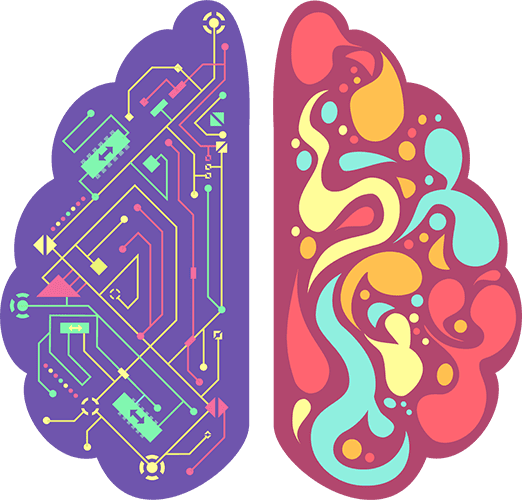Facebook Funded a Mind Reading Machine that Works. Do You Have Mixed Feelings About This?
August 5th, 2019
by Andreea S.

Facebook is still into mind reading. A neuroscientific study shows that we could improve communication with paralyzed patients with the help of a device that can translate speech-related brain signals into text.
A team of neuroscientists went where no one had gone before: inside the brains of three epilepsy patients who were about to receive surgery for their condition.
Nothing unusual so far, but according to the paper published in Nature Communications a few days ago, Dr. Edward F. Chang and his team seem to have turned a Sci-Fi trope into reality.
They managed to translate speech-related brain signals into text.
The Premise
The paper, titled Real-time decoding of question-and-answer speech dialogue using human cortical activity, reveals that we could achieve real-time decoding of speech extracted from peoples’ brains, in a natural conversational setting.
While science needs to up its ante to find more complex solutions in the future, these first results represent a massive breakthrough for individuals who are unable to communicate. If only Stephen Hawking had such opportunities in his youth…
If you still find it challenging to wrap your mind around what the neuroscientist did, let us spell it out for you: they found a technique to demonstrate how we can collect from a person’s brain signals that person’s intention to utter specific words.
We can also transform that intention into text fast enough to create a natural conversation.
The Method
Dr. Chang and his team studied three epilepsy patients – who could all speak normally – by using electrodes to record their brain activity. For the duration of the study, the researcher asked each patient a series of questions, also requesting a list of potential responses to each of them.
Once the patients offered all answers, the team built computer programs and models able to learn to match specific brain activity patterns to the questions each patient heard and the answers each of them gave.
After the training, the computer model achieved the breakthrough we mentioned at the beginning: it identified, almost in an instant and only from brain signals alone what question each patient heard and what response each patient offered.
The Results
The software’s accuracy was 76% for the identified spoken questions and 61% for the recognized verbal answers, respectively.
But what does it mean?
It means that for the very first time in human history (to our knowledge), scientists could
Decode both perceived and produced speech from human participants in a real-time setting that resembles natural communication.
According to the study, we learned that with the proper means, we could detect brain signals linked to the physical mechanisms of speech – namely the signals moving the lips, tongue, and muscles in the larynx and the jaw.
No device, as proposed by Dr. Chang and his team, would be, however, incapable of “translating” thoughts into words.
For now.
What Does the Future of Mind Reading Bring?
In theory, science could develop a system able to translate speech directly from brain signals on the go. The stepping-stone for this would be, naturally, the training of the machine.
We would need a device so powerful and perfect that it could learn an incommensurable amount of algorithms to match spoken language to its corresponding brain signal data, which varies across all individuals in the world and is significantly different from culture to culture, just to name two of the potential variables science must include in further experiments.
As one imagines, the door this research opened is the tracking and translating of “imagined speech” – our silent words and phrases that we speak in our minds. A form of mind-reading – any form – would change the world forever, especially for those suffering from severe impairments. As the researchers mentioned in the press
These demonstrations are essential steps toward the development of a functional neuroprosthesis for communication that decodes speech directly from recorded neural signals.
The Dilemma
Facebook-funded this particular research, and we would be OK with it all if the social media giant would not already know too much about us and what we want to do with our lives.
This science funding gives the “What’s on your mind?” Facebook status question a new angle and a pretty creepy one to boot.
The ethical issue here is easy to understand: could we invent the machine able to read and to reveal peoples’ thoughts for all interested parties to hear?
The official position of neuroscience on the matter of mind reading is immovable: it is impossible to develop any software, algorithm, or a machine to read peoples’ thoughts, let alone morph them into text.
Dr. Chang’s system only decodes speech when a person’s thoughts become signals that move the muscles involved in verbal utterances.
On the other hand, Mark is already in the business of human-computer interfaces, so… how close are we, truly?
Don’t We Just All Love Mind Reading Dystopias?
When it comes to people who have paralysis, neurodegenerative disorders, brain injuries, and so on, finding a solution for them to regain their most basic human ability – speech – would make this world a far, far better place. It would change their lives tremendously and would push humanity ten steps further.
During the Facebook F8 – Developer Conference in 2017, the tech giant gave us a sneak peek into their project of creating a brain-computer interface allowing people to type directly on the internet what they think, without moving a face muscle or a finger for that matter.
Is this research part of that project?
Mark Zuckerberg stated two years ago that such devices – mere visions and ideas – were still far ahead of us.
We Cannot Help but Wonder: What If?
What if we developed a machine to read a person’s thoughts? Could a speech neuroprosthesis become the enemy dystopian literature writers warned us about since decades ago?
Is it farfetched to wonder what would happen if these neuro-machines fell in the wrong hands? And could they work both ways? Extract thoughts from people and also implant thoughts in their minds?
What then?
Want more science now?
Check out our news page where we post interesting studies and discussions (sometimes mocking them mercilessly) for more.
